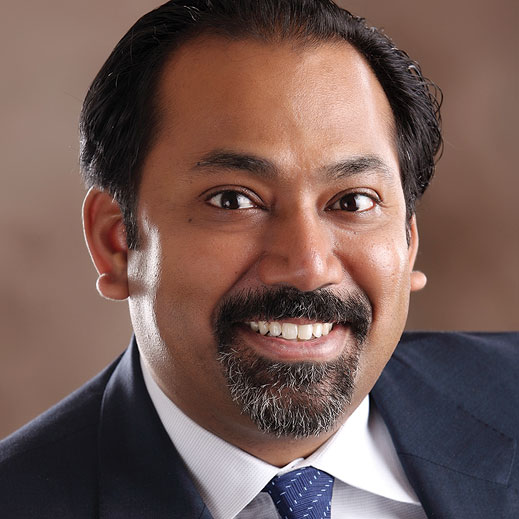The innovation revolution is happening now, says Vijay Vaitheeswaran, the Shanghai-based Economist correspondent and author of the 2012 book Need, Speed, and Greed: How the New Rules of Innovation Can Transform Businesses, Propel Nations to Greatness, and Tame the World’s Most Wicked Problems. “The very rules of innovation are changing, and this is something that is transforming the global economy, changing industry, and very much affecting our lives, education, careers, and so on,” he says.

Vaitheeswaran’s book, his third, involves politics, economics, business, and energy—topics he’s covered during his 20-year career with the Economist. In the book, he argues that the pace of innovation—how ideas are conceived, incorporated, and disseminated—is accelerating. Decision makers need to harness new communication technologies, he says, to keep up with “perpetual disruption.” He points to the way Procter & Gamble, an older brick-and-mortar company, has departed from its past practices by encouraging outside involvement in its research and design process.
Vaitheeswaran was born in India and raised in the United States, but his global perspective grew even more expansive during his MIT days when he spent a semester as an intern in the British parliament as a Hansard Scholar. He still values his mechanical-engineering studies, particularly courses such as the legendary 2.70, Introduction to Design, under professors Woodie C. Flowers, SM ’68, ME ’71, PhD ’73, and Harry West, SM ’84, PhD ’86. They “opened our eyes to another side of engineering—the elegant, evocative side that was quite different from the equations and the analysis that we had been exposed to,” he says. “It was tremendous fun and stretching our left and right brains together.”
After graduating from MIT, he worked in marketing for a couple of years. He was planning to head off to business school when a former roommate suggested he apply for an internship at the Economist. “And I never left,” he says.
During his career, he has worked in New York and London and in Mexico City covering Latin America. In November 2012, he moved with his wife and his now two-year-old daughter to Shanghai to open up a new bureau to cover Chinese business and finance for the magazine.
“Life is good as a journalist in many ways,” he says. “It’s a privileged job—you get to meet interesting people, travel around, and ultimately you get a chance to glimpse into many, many lives.”
Keep Reading
Most Popular
Large language models can do jaw-dropping things. But nobody knows exactly why.
And that's a problem. Figuring it out is one of the biggest scientific puzzles of our time and a crucial step towards controlling more powerful future models.
How scientists traced a mysterious covid case back to six toilets
When wastewater surveillance turns into a hunt for a single infected individual, the ethics get tricky.
The problem with plug-in hybrids? Their drivers.
Plug-in hybrids are often sold as a transition to EVs, but new data from Europe shows we’re still underestimating the emissions they produce.
Google DeepMind’s new generative model makes Super Mario–like games from scratch
Genie learns how to control games by watching hours and hours of video. It could help train next-gen robots too.
Stay connected
Get the latest updates from
MIT Technology Review
Discover special offers, top stories, upcoming events, and more.